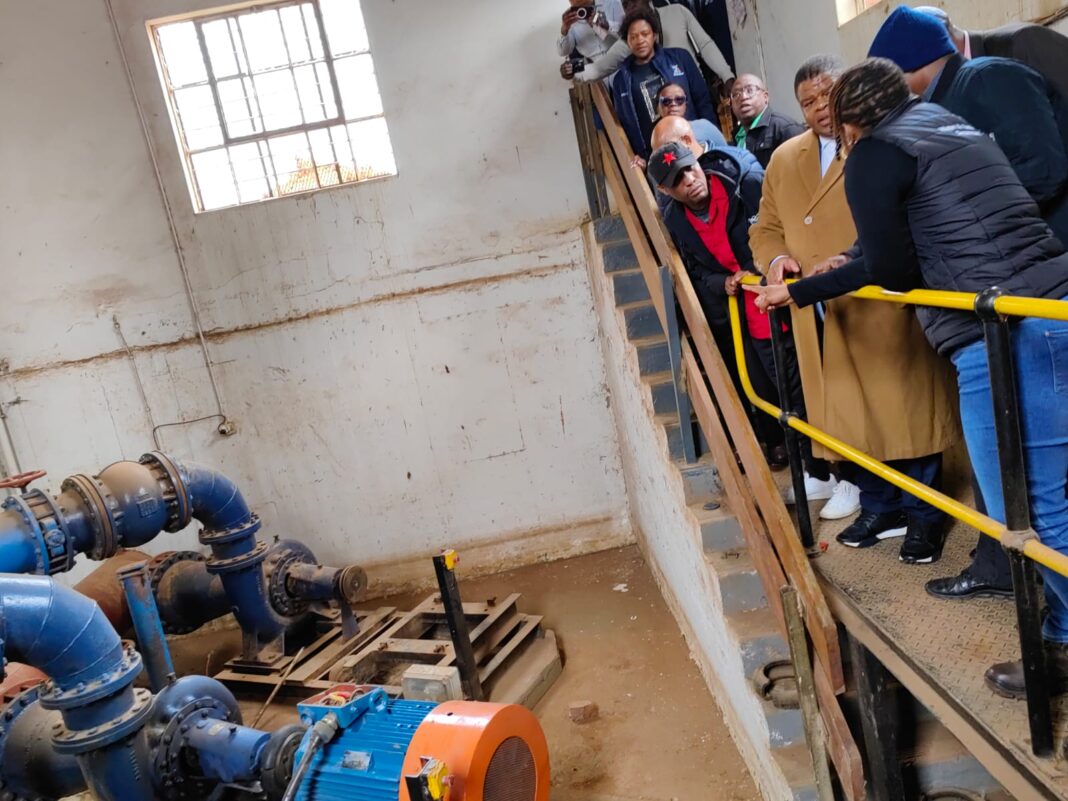Lerato Mbhiza
Deputy Ministers of Water and Sanitation, David Mahlobo and Judith Tshabalala, and Rand Water Board Chairperson, Ramateu Monyokolo, on Thursday met with the political leaders and the councilors of City of Ekurhuleni Metropolitan Municipality and the City of Tshwane, to find ways to resolve water supply issues in the municipalities.
The group spent two days on a site visit to assess areas affected by water shortages in the three metros including the City of Johannesburg.
On Tuesday, Mchunu met the leadership of the City of Johannesburg and the communities of South Hills and Ebony Park. These are some of the areas that were also hardest hit by water shortages in recent weeks.
The event led to a meeting that was convened in the evening on the same day with various stakeholders to come up with immediate solutions to the situation.
On Wednesday, Mahlobo met with the leadership of Ekurhuleni Metropolitan Municipality and was informed that most areas do not have reliable water supply for a prolonged period.
This led to the community of Makause informal settlement in Tsakane, to embark on a protracted protest action about lack of water in the area.
The main cause of lack of water is intermittent power cuts that affect the reservoir pump stations to pump more water and the low water levels of the water storage reservoirs in the City.
Brakpan reservoir, responsible for supplying water to Duduza, KwaThema, and Tsakane, was at a low point of 35% instead of the required 60%-70%. The low levels of the reservoirs affected water supply to most high lying areas in the area.
Tshabalala also had an engagement with the councilors of Etwatwa Township, in Ekurhuleni. She has reiterated the problem of high percentages of water loss and sewer spillages in the municipality.
She urged the councilors to prioritise issues of water and sanitation because when neglected, they amount to a violation of human rights to the community members of Ekurhuleni.
The entourage proceeded to Soshanguve and Waterkloof in the City of Tshwane, which were also experiencing supply challenges as a result of low capacity in reservoirs.
Mahlobo encouraged the municipalities to impose Level 1 water restrictions, especially on water consumers who use water for gardening and irrigation.
In as much as there were water supply challenges in some municipalities of Gauteng, Mahlobo highlighted that there was a high availability of water in the province’s Integrated Vaal River System. He said the bulk supplier of water to municipalities, Rand Water, is treating and supplying more water to municipalities than it used to.
“There should not be a problem of water availability in Gauteng because some of the municipalities get more water than they are licensed to have. Rand Water is also abstracting and treating more water supplied to Gauteng municipalities than it used to.
“However, there are high percentages of loss of water (Non-Revenue Water) due to water leaks, illegal connections, ageing and vandalism of water infrastructure in municipalities. Water is therefore being lost before it can even reach the communities,” said Mahlobo.
Following the two days engagements, Rand Water and the Municipalities have committed to work on an immediate water management plan including implementing water-shifting, as an interim measure to stabilise the system of the storage reservoirs that are currently low.
INSIDE POLITICS

